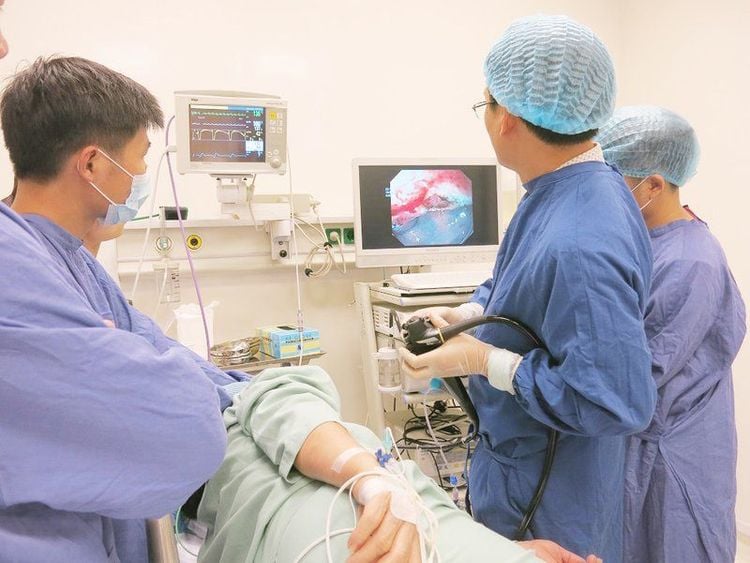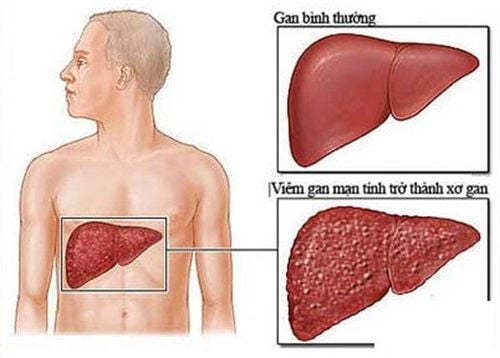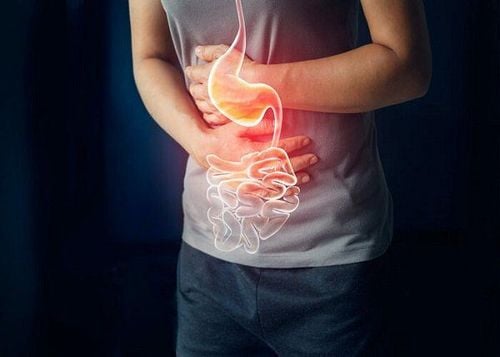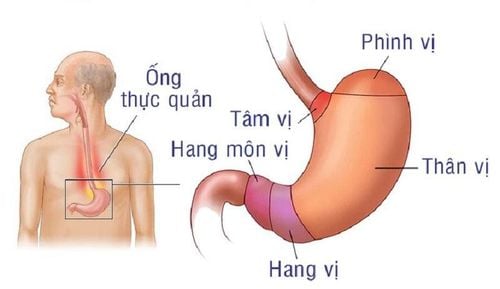This is an automatically translated article.
The article is expertly consulted by MSc Duong Xuan Loc - Gastroenterologist - General Surgery Department - Vinmec Danang International General Hospital. The doctor has more than 12 years of experience as a Gastroenterologist.Esophageal varicose veins vomiting blood should be treated promptly, minimizing the danger to the patient. Currently, the condition of esophageal varices vomiting blood has been treated in many different ways, suitable for the specific condition of each patient. What is hematemesis due to esophageal varices?
The veins in the lower part of the esophagus can become dilated when blood flow to the liver is repeatedly reduced due to scar tissue or dynamic blood clots. When blood flow is blocked, blood accumulates in other nearby blood vessels, including those in the lower part of the esophagus. Because veins are small and can't carry all the accumulated blood, they are at risk of bulging and dilating. This condition is esophageal varices. When the esophageal vein is dilated for too long, it can leak blood and rupture, leading to dangerous bleeding.
At that time, the patient has the most typical symptoms of vomiting blood. Besides, there are manifestations of abdominal pain, dizziness, black stools, blood, shock compared to blood loss, ... Patients with esophageal varices vomiting blood may be due to causes such as real varicose veins. large bronchi, portal hypertension, severe cirrhosis.
1. How to treat varicose veins of the esophagus vomiting blood?
Patients with esophageal varices vomiting blood can be treated with gentle and effective endoscopic methods based on the indications of the treating doctor. Through endoscopy, the patient will be stopped bleeding, ligation of esophageal varices.Endoscopic hemostasis and true venous ligation are often indicated in emergency cases, which is considered the safest and most effective treatment today for patients. By endoscopic esophageal sphincter, the doctor can combine pre-anesthetic methods for the patient during the procedure. Therefore, endoscopic treatment of esophageal varices with vomiting blood takes place gently, safely, effectively and quickly.

2. TIPS method to treat esophageal varices, vomiting blood
TIPS is a new treatment method for patients with cirrhosis applied in cases of esophageal varices vomiting blood in which endoscopic treatment of varicose veins is evaluated as ineffective. This is an endovascular, minimally invasive, but non-surgical method that minimizes complications for the patient and shortens the recovery time.With TIPS, patients can prevent gastrointestinal bleeding or emergency treatment of gastrointestinal bleeding due to rupture of esophageal varices that medical and endoscopic treatments are not effective. In cases where the patient has had endoscopic venous ligation many times before but the bleeding recurrence continues, or cannot be treated with endoscopic vein ligation, treatment with TIPS may be indicated. .
However, the treatment of esophageal varices with vomiting blood with TIPS can cause serious complications for the patient such as liver failure, mental confusion, can develop toxins that would normally be Hepatic filtration is transferred via a shunt directly into the bloodstream. Doctors will usually order TIPS when a patient has been treated with all other methods and has failed or been ineffective. This is also a temporary treatment for patients waiting for a liver transplant.
3. Other treatments

The patient can be treated depending on the condition based on the doctor's prescription such as the method of preventing infection with an antibiotic, the method of restoring blood volume by transfusion of blood and clotting factors to prevent infection. hemostasis. These are temporary treatments for the patient.
Liver transplantation for patients is a viable treatment option for patients with severe liver disease or bleeding due to recurrent esophageal varices.
Please dial HOTLINE for more information or register for an appointment HERE. Download MyVinmec app to make appointments faster and to manage your bookings easily.














